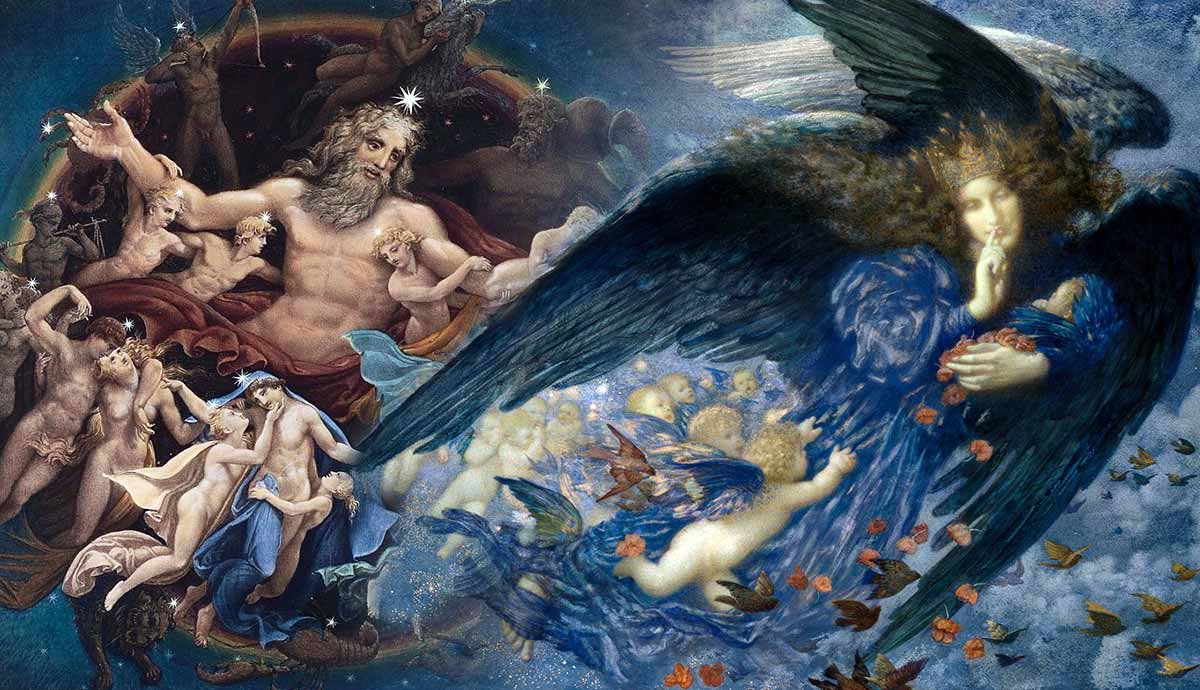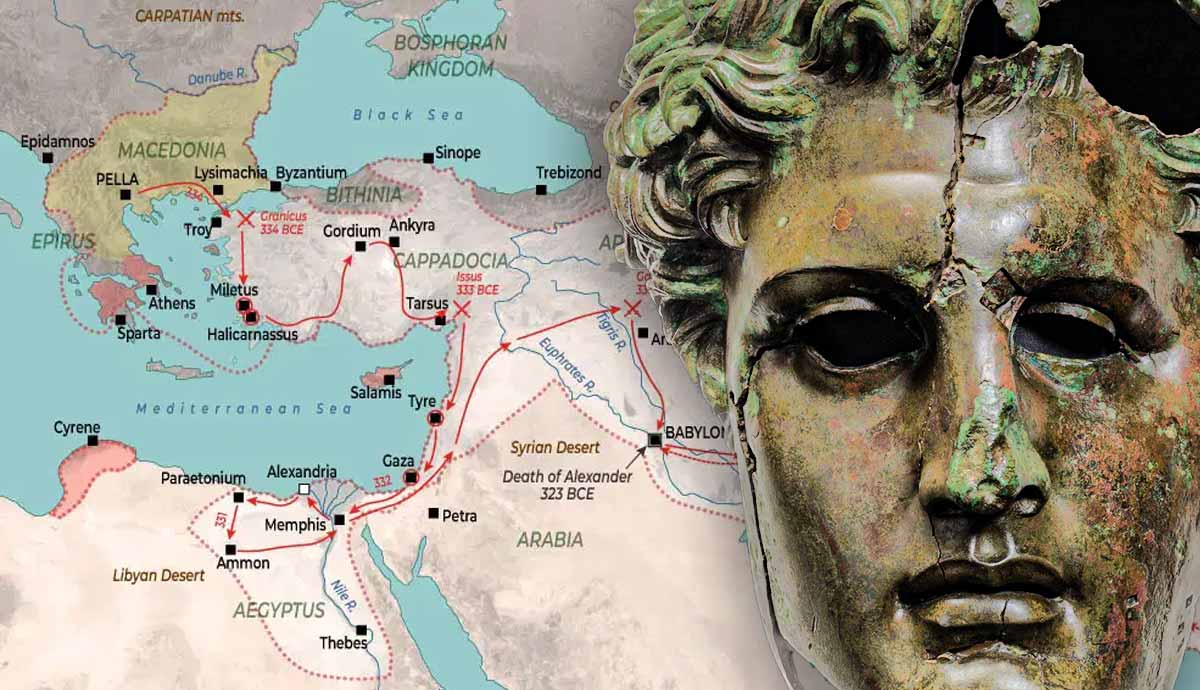
Caligula (12-41 CE) is one of the most notorious Roman emperors. What is Caligula known for? Mostly his incestuous relationship with his sisters, his cruelty, the madness that culminated in him naming his horse Roman consul, and megalomania in declaring himself a god. Yet, all those salacious stories come from a few ancient sources, written by prominent senators who despised Caligula’s autocratic style of rule. Upon closer examination, Caligula’s brief life is a complex and fascinating story of a boy emperor thoroughly unprepared for the throne, who, in the early years of the Roman Empire, tried to make Rome an absolute monarchy but failed. A spoiled and reckless ruler who, for his transgressions against the traditional order, was tarnished by his enemies, being remembered as a madman, a tyrant, a pervert, and one of the worst Roman emperors. Let’s explore the truth behind the life of Caligula in 18 facts.
1. Caligula Was a Member of the Revered Imperial Dynasty

Born as Gaius Julius Cesar, the future emperor Caligula was born into imperial splendor and politics. His parents, a popular Roman general and a war hero Germanicus and Agrippina the Elder, were members of the prestigious Julio-Claudian dynasty. Germanicus was the adoptive son of emperor Tiberius and his designated heir. Agrippina was the daughter of Marcus Vipsanius Agrippa and Julia the Elder, the daughter of the first emperor Augustus, making Caligula, whose birth name was Gaius Julius Caesar, a direct descendent of Augustus.
2. Caligula Was His Nickname

As the son of a general, young Gaius spent most of his childhood accompanying his father on military campaigns. The boy soon became a favorite of Germanicus’ legionaries. They dressed the future emperor in the little soldier’s outfit, including miniature boots – caligae. Thus, Gaius became known as Caligula, “little boot.” However, although Caligula had a keen interest in military affairs, he was uncomfortable with the moniker, and after assuming the throne, he used his full name with honorifics, Gaius Caesar Augustus Germanicus.
3. Caligula Lost His Father Early

It is unclear what exactly transpired, but Caligula’s father, Germanicus, suddenly died in 19 CE after contracting a lethal dose of malaria during his sojourn in Egypt. On his deathbed in Syria, Agrippina informed her family and anyone else who would listen that Germanicus had been poisoned. She accused a jealous Tiberius of being behind the plot. While Tiberius was probably not involved in Germanicus’ death, he certainly played a role in the violent end of Caligula’s mother and his two older brothers, who were exiled for treason and later died.
4. He Survived the Game of Thrones

Gaius was the sole male member of his family who managed to survive the treason persecutions under Tiberius, along with his three sisters. While Tiberius ordered the imprisonment and execution of Agrippina and her two sons, the main culprit behind this move was most probably Sejanus, a powerful praetorian prefect who wanted rivals out of the way to pursue power for himself. Sejanus, however, soon fell victim to his own ambition and was killed. Tiberius summoned young Gaius to his grand imperial villa on the island of Capri, where he was living as a recluse, and groomed him as heir. The next six years were stressful for the future Roman emperor, who lived under the watchful eye of the paranoid Tiberius.
5. In The Beginning, Caligula Was Wildly Popular

Following Tiberius’ death on 17th March 37 CE, Caligula turned from a hostage to a master as the third Roman emperor. In what could surprise many, the first months of Caligula’s reign went very well. A member of the revered family, Caligula was wildly popular. Further, unlike paranoid and secluded Tiberius, Caligula was young and charismatic. Immediately after taking the throne, Caligula began by ending treason trials, granting amnesty to the exiled, and abolishing unfair taxes. He also organized lavish gladiatorial games and chariot races, much to the delight of the Roman populous. According to Philo of Alexandria, Caligula was the first emperor admired by everyone in “all the world, from the rising to the setting sun.”
6. The New Ruler Had Ambitious Plans

The newly crowned ruler completed several buildings started under emperor Tiberius, rebuilt the temples, began the construction of new aqueducts to ensure the water supply of the rapidly growing city, and even built a new amphitheater in Pompeii. Caligula also improved the port infrastructure of the capital, allowing for increased grain imports from Egypt. This was particularly important since famine struck early in his reign. Later, Caligula also embarked on personal lavish construction projects. He expanded the imperial palace and constructed two massive floating pleasure barges for his personal use at Lake Nemi.
7. Caligula’s Reign Turned Sour Quickly

Soon after becoming an emperor, Caligula fell seriously ill. It is possible that he had a nervous breakdown or he had epilepsy, a condition that plagued both Julius Caesar and Emperor Augustus. While Caligula was bedridden in delirium, the whole of ancient Rome prayed for his recovery, further testifying about the emperor’s early popularity among the people. Yet, if we are to believe Suetonius and other ancient sources, Caligula’s illness left him a different man. Caligula’s madness is usually dated from this time, and the rest of his brief reign was marked by paranoia and unrest.
8. Caligula’s Feared the Return of the Republic

Caligula is remembered for his tyrannic acts. Treason trials returned, he executed many senators, and he had Tiberius’ young grandson and his potential rival Tiberius Gemellus killed. Gemellus might have plotted against Caligula while he was incapacitated, given Rome’s history of court intrigues. But the worst of all, Caligula being out of action did not change anything. Governors governed the provinces, and the Senate met and passed decrees. In the early days of the Empire, Rome could survive without an emperor. Many senators still hoped for the restoration of the Roman Republic. Caligula seems to have felt the threat of being “superfluous.”
9. Caligula Waged War with the Senate

Seeing them as rivals who curtailed his power, Caligula despised the Senate. Determined to show who was the true power, the emperor jettisoned the policy of his predecessors, who carefully pretended to be a mere princeps – the “first citizen.” He went so far as to slaughter individual senators he perceived as threats to his rule. Ironically, Caligula could find the justification in his own family history, as his revered ancestor, Julius Caesar, had been a victim of a senatorial plot. Moreover, both Augustus and Tiberius imprisoned and even executed senators and other potentates they deemed dangerous.
10. Caligula Never Made His Horse A Consul

The emperor’s hatred of the Senate put him on a collision course with some of the most powerful men in Rome. Caligula, however, was determined to show the senators that he was running the show. The tale of Incitatus, Caligula’s beloved racehorse, being named as a consul is often cited as a prime example of his madness. However, our main source for this incident, Suetonius, lived decades after Caligula’s death and was himself a senator. Instead, the story of Incitatus should be seen as an imperial prank intended to show the senators how meaningless their job was, as even a horse could do it better. Above all else, it was a demonstration of Caligula’s supreme power.
11. He Did Not Declare War on the Sea

Suetonius reports that after his failed invasion of Britain due to mutinous troops refusing to invade, Caligula declared war on Neptune, god of the sea, and had the waves whipped. He also ordered legionaries to collect seashells as prizes of war. “Act of insanity” or punishment for disobedience? Collecting seashells was certainly degrading but more lenient than decimation (killing one in every ten men). Or the soldiers never had to collect shells but were ordered to build tents instead? The Latin term muscula used for the shells also described engineering tents. The tents could refer to the construction of a military camp on the French side of the Channel, used by Caligula’s successor Claudius as a staging ground for the conquest of Britain in 43 CE.
12. Caligula Had a Special Relationship with His Sisters

Another infamous report by Seutonius described Caligula’s lavish banquets, where he enjoyed sex with his sisters while appalled guests looked on. His favorite was Drusilla, whom Caligula loved so much that he named her his heir and, upon her early death, proclaimed her a goddess. However, according to the historian Tacitus, born 15 years after Caligula’s death, the incestual relationship was a mere rumor. Philo of Alexandria, a guest on one of those banquets, failed to mention any kind of scandalous incidents. It is likely that critics used Caligula’s close bond with his three sisters against the emperor whom they despised.
13. He Admired Hellenistic Kings

If true, it is possible that Caligula’s intimate relationship with his sisters was a part of Caligula’s growing obsession with the East. The Hellenistic rulers, the Ptolemaic kings in particular, preserved their bloodlines via incestuous marriages. Caligula’s alleged relationship with Drusilla could have been motivated by the emperor’s desire to keep the Julio-Claudian lineage pure. The Roman elites, however, saw the emperor’s obsession with the Hellenistic East as thoroughly un-Roman, an absolutist style of rule that went against the Roman tradition.
14. The Emperor Declared Himself a God

Caligula’s fascination with the Hellenistic East led to one of the most infamous moments of his brief reign. According to Suetonius, the crazed emperor declared himself a God. Starting with Alexander the Great, the Hellenistic kings, whom Caligula perceived as models, were almost routinely deified. However, Caligula awarding himself the same status in Rome could only backfire, as the senators used such an act as clear and definite proof of the emperor’s madness. It did not help that Caligula also declared his intention to move the capital of the Roman empire to Alexandria, the city that the senators could not access without the emperor’s permission.
15. Caligula Was Ahead of His Time

Caligula’s admiration of the Hellenistic East and his attempts to establish autocratic rule played a major part in his downfall. However, by the end of the century, the situation profoundly changed. When the emperor Domitian declared himself Master and God, few objected. As the centuries passed, the Republican traditions faded away, replaced by autocratic rulers. The emperor Aurelian ruled with an iron fist, while Diocletian made Rome an openly absolutist monarchy, establishing the Dominate, where the emperor was a godlike king, and the Senate had a ceremonial role.
16. Caligula Caused His Own Downfall

Caligula, “the Living God,” had the support of the people and the army but was too young, inexperienced, and reckless to fight the Senate. Senators had connections, and while Caligula sat on the throne, the senators had a hidden grip on all levels of power. The Senate, however, could do nothing as long Caligula was protected by the Praetorian Guard. Thus, when Caligula insulted one of the Praetorians, an experienced officer named Cassius Chaerea, the Senate got a rare opportunity to strike.
17. Caligula Death Changed Nothing

On January 24th, 41 CE, following his favorite pastime, the games, Caligula was attacked by his own guards. Chaerea was said to have been the first to stab the surprised emperor, with others following. The plotters also murdered Caligula’s wife and daughter to prevent any possibility of a legitimate successor. With the emperor lying dead, the senators briefly considered the abolition of the monarchy and the restoration of the Republic. But then, one of the Praetorians found Caligula’s uncle Claudius cowering behind a curtain and hailed him the new emperor. The Roman Empire was there to stay under the new and unexpected emperor Claudius.
18. Caligula’s Name Was Tarnished for Posterity

The Senate’s plan to abolish the Roman monarchy failed, but they could attack Caligula. He underwent a “damnatio memoriae,” with his name scrubbed from public monuments and his images taken down. Moreover, as in the case of Caligula’s nephew, the emperor Nero, the senators were the ones who wrote history and who used their power to tarnish the name of ill-fated rulers to justify their removal and strengthen the legitimacy of later imperial dynasties. Thus, Gaius Caesar, an average and misunderstood autocrat, turned into an epic villain, a madman, a tyrant, and one of the worst, if not the worst, of Roman emperors.










